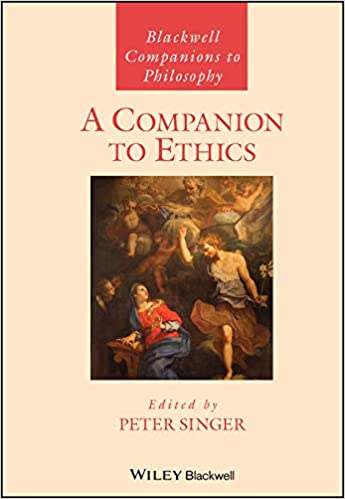

 |

|

The average rating for A Companion to ethics based on 2 reviews is 4 stars.
Review # 1 was written on 2013-08-15 00:00:00 Mark Beam Mark BeamSinger takes a different approach with this book and instead of culling from existing literature, he calls for essays. The result is an eclectic mix of essays that exhibit a wide range of contemporary’s takes on some of the classic and current problems that philosophers wrestle with or theorize about. It consists of some fifty original essays. These essays deal with the origins of ethics, with the great ethical traditions, with theories about how we ought to live, with arguments about specific ethical issues, and with the nature of ethics itself. As Singer puts it, a quick summary might go like this: in the first part, we see how little we know about the origins of ethics, how ethics in small-scale societies takes forms very different from those it takes in our own, and how the most ancient ethical writings already reflect a variety of views about how life is to be lived. Then the great ethical traditions are put on display; and we find divergence of opinion not only between the different traditions, but within each tradition itself. The history of Western philosophical ethics shows how, from the earliest Greek thinkers to the present day, old philosophical positions have resurfaced at intervals, and old battles have had to be fought out all over again in more modern terms. When, in Part IV, the volume moves from the past to the present, we are presented with many theories of how we ought to live, and about the nature of ethics, all plausible, sometimes disagreeing with other approaches. The many voices makes this a valuable collection in that the method provides a level of over-all detachment that a single author tackling multiple philosophies might find hard to achieve. Here each of the authors are (presumably) scholars who wanted to make a distinct point and Singer is okay with accepting that the book might not have any coherence beyond being a companion to the many schools; but the reader also develops a sense of convergence of ideas as the book moves from the past to the present and from questions to possible solutions. What is striking at this point is the unexpected extent to which writers who had started from quite different places all seemed to be heading in the same direction. That is the strength of the book. It lays out the pieces of the jigsaw puzzle but leaves it to the reader to divine if there is an overarching outline connecting them. And a book on philosophy should always endeavor to let that thrill be the reader’s. |
Review # 2 was written on 2007-07-08 00:00:00 Mike Craig Mike CraigSinger is a great editor. The selections on kantian, rights, virtue, and consequentialism are some that I recall off-hand being good. The point made (in "consequentialism") that this is a theory of moral justification (finding out what acts are right or wrong) and NOT a theory of moral deliberation (not a guide to make everyday decisions, necessarily) was great. The section (or is it just the tradition) of deontology was terrible. |
CAN'T FIND WHAT YOU'RE LOOKING FOR? CLICK HERE!!!